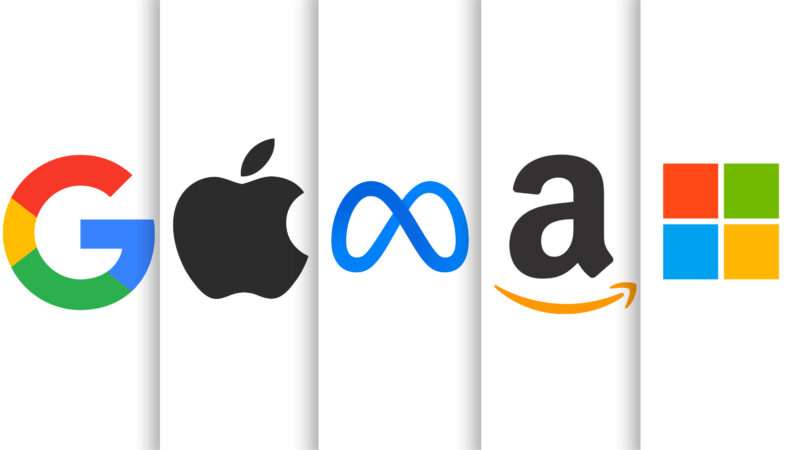
This week, Kara Frederick of the conservative Heritage Foundation released a report titled "Combating Big Tech's Totalitarianism." As evidenced by the title, Frederick takes a dim view of the current state of the tech sector, mentioning companies like Facebook, Twitter, and Google, and makes suggestions for reforms she feels are necessary. But while some of the suggestions are understandable, even laudable, much of the report comes at the issue from the wrong angle.
Frederick starts by detailing certain censorial actions by "Big Tech" firms, which she defines as the "Big Five" of Alphabet (which owns Google), Amazon, Apple, Meta (which owns Facebook), and Microsoft, plus companies like Twitter, Snapchat, TikTok, and Netflix, "whose cultural and political impacts on public debate are important." Indeed, some of the incidents detailed are troubling: Social media platforms blocking users from sharing a New York Post article about Hunter Biden just weeks before the 2020 election, YouTube suspending videos of politicians for simply discussing public health topics, etc. Obviously, none of these are First Amendment violations, as private companies can allow or disallow any speech they please, but these actions do detract from a culture of free speech.
The report veers off course in some of its reform recommendations. Specifically, Frederick invokes Section 230, the law which exempts websites from liability for content posted by its users, but she misunderstands its history and application. The report states, "digital platforms like Facebook and Google initially claimed to be neutral conduits of information, and Section 230 enshrined this claim and allowed these companies to accrue users and technical advantages under those auspices." This is wrong: Section 230 predates both of those companies by nearly a decade and could not possibly have been drafted with either of them in mind. What's more, Section 230 has nothing to do with a platform's neutrality—the explicit intent of the law was to encourage platforms to moderate content.
Much of the report calls for reforms that would either be difficult to implement or just make the internet worse. One recommendation states, "In addition to clarifying what speech may be (and is expected to be) moderated under Section 230, policymakers should expressly state specific examples of what is not covered… If firms are moderating content based on these criteria, they should not be afforded liability protections under Section 230 and would not be considered 'viewpoint-neutral.'" The idea that any group of people could sit down and craft a comprehensive list of what is and is not OK to post online simply defies logic.
"Viewpoint neutrality" is a completely ephemeral concept, almost entirely within the eye of the beholder: What I consider radical, you may consider completely reasonable. Not to mention, the intentional preference of certain speech over other speech is almost certainly unconstitutional. If a group of atheists crashed a church sermon in order to try to convince the congregation to renounce their faith, the pastor would be perfectly within his rights to have them removed. Frederick is making the case that if the exact same interaction took place in the comments section of the church's website, the church would have to leave that content up.
Tech companies are certainly not immune from criticism, and the report is not without merit. But by focusing so much misdirected ire on Section 230 and a vague target of neutrality, its recommendations threaten to make the internet a place of restrictions rather than expression. If the goal is, as the report states, to "restore the principles of free expression and the democratic promise of technology," then this is exactly the wrong way to do it.
The post The Heritage Foundation Wants To Break the Internet appeared first on Reason.com.







